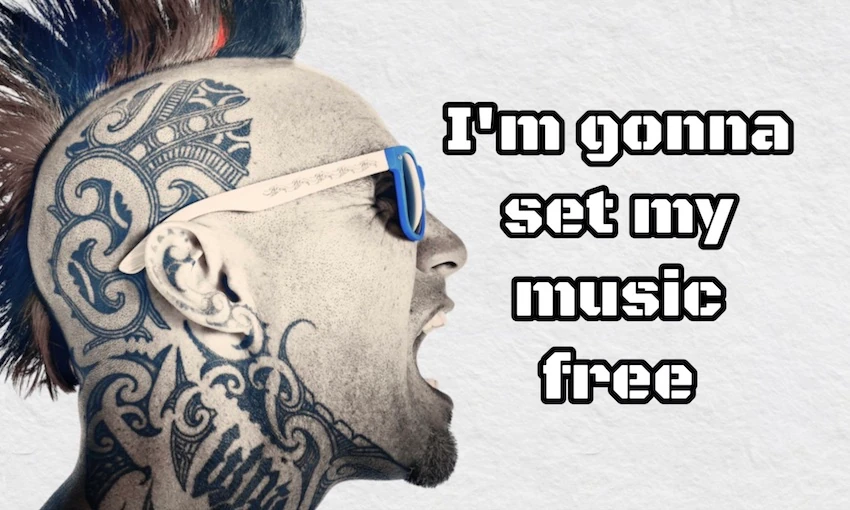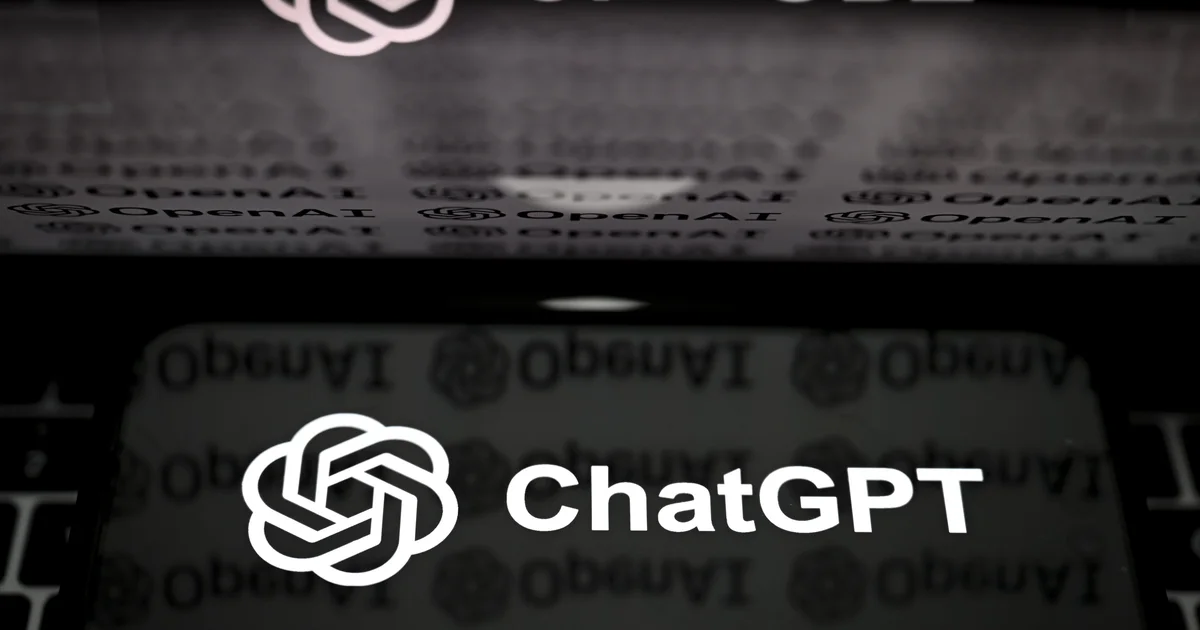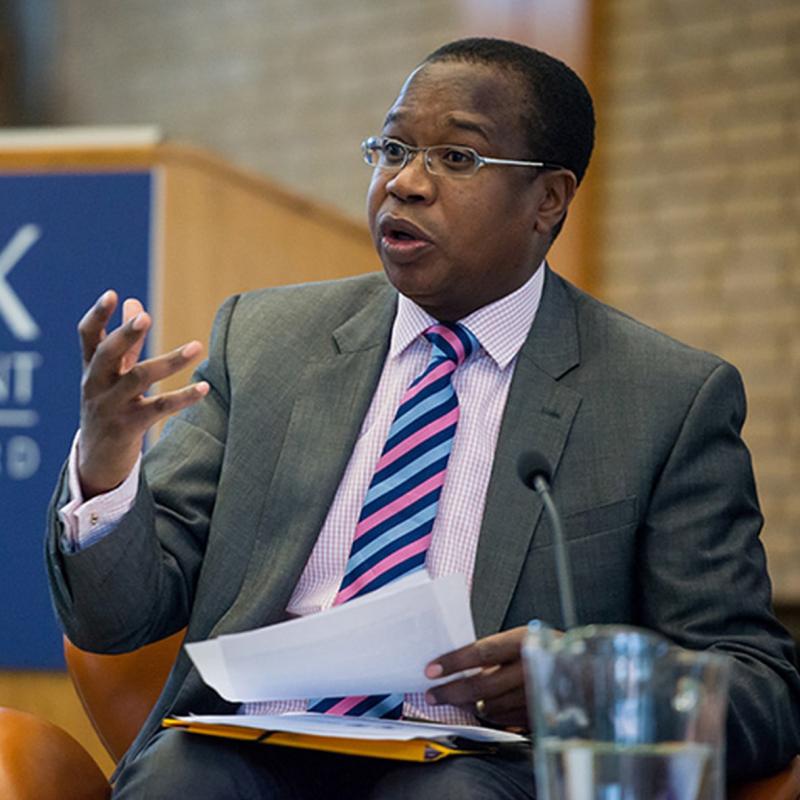By Chris Schulz
Copyright thespinoff

Tiki Taane lets us know what he really thinks about the world’s biggest streaming platform.
Last night, just before 8pm, Tiki Taane poured himself a drink, opened the door to his Papamoa music studio and sat down at his laptop. Then he counted down the minutes until his new song – an angsty punk-rock protest anthem calling for a revolution – debuted.
Taane expected the reaction to be swift, possibly harsh, perhaps threatening. “Is there a lawsuit? Who fucking knows,” he told me recently while sinking into a black beanbag on his studio floor. “If they pull it down? Great, let’s go. If I get in trouble? Great, let’s go. This isn’t my first rodeo.”
Taane is among the country’s most prolific collaborators and producers, with credits on songs by Salmonella Dub, Shapeshifter and Concord Dawn. His most popular song, ‘Always on My Mind,’ has had 26 million streams. Now he’s removed that and almost 150 others from Spotify, leaving one last pointed track on the platform.
Called ‘Bye Bye Spotify,’ it is a call-to-arms that takes direct aim at the world’s largest music streaming service. His lyrics are a savage indictment of how bad he believes things have become. “Fucking streaming war machine,” he spits out at one point. “You take my songs and turn them into bombs … I’m gonna set my music free.”
Taane had always questioned Spotify’s intentions, spending years worrying about whether it was the right place for his music. Several moments led him to this point, including reading Liz Pelly’s recent book Mood Machine: The Rise of Spotify and the Costs of the Perfect Playlist, and learning that the platform’s co-founder Daniel Ek had invested millions in the AI defence tech company Helsing.
Now, he’s heard enough. “You learn about the algorithmic manipulations, the ghost-writing, the fake streams, the bot farms, the investment in war technology, and you start going, ‘What? My music’s on this platform!’” Taane says. “Fuck that.”
It’s a realisation many others have come to lately. A Spotify exodus appears to have begun, with some of the bigger international names to remove their music including King Gizzard and the Lizard Wizard, Hotline TNT and Xiu Xiu. “We don’t want our music killing people,” San Francisco indie-rockers Deerhoof said after quitting the platform in June.
Locally, a handful of acts have also made the move, including The Bats, who complained the app had “paid next to nothing to us,” and the Bethells Beach rapper Scalper, who called Spotify an “abhorrent entity” under a photo of his cat’s vomit. (Spotify didn’t respond to a request for comment.)
But Taane is the biggest Aotearoa artist to make the move – and he’s also the first to write a song about it, making him the loudest too. He believes others will soon follow in his footsteps. “I’m getting feedback and they’re going, ‘Holy shit, this is awesome,’” he says. “Every artist is asking, ‘Where is the line?’ Everyone’s conflicted.”
If anyone asks him how they should do it, he sends them a link to Pelly’s book, tells them to read it, take their time and do their research. “Arm yourself with knowledge. What do you have that you can promote and build on and call your fans over to?”
For Taane, the question was also, “How can I use Spotify like they used me?” Loading one last protest anthem onto the platform is his answer to that question.
This hasn’t been an easy process. There’s no simple “delete” button. Every song, feature and remix Tiki Taane has uploaded had to be dealt with individually. Taane spent many months contacting the many artists he’s collaborated with, asking for permission to delete songs or change Spotify’s settings so they no longer appear on his artist page.
Yes, there’s a financial hit too. Taane estimates Spotify streams for ‘Always on my Mind’ have earned him $140,000 over the years. That song still gets streamed 8,000 times a day – double that around New Year’s Eve. Removing his music means he’ll no longer receive those royalty cheques.
So Taane’s spent time building up other revenue options, investing in his own website Tikidub.com, sending out newsletters, connecting with his own fanbase and live streaming his shows while continuing his work as a mentor, producer and Shapeshifter’s sound engineer. It’s a family affair: his sisters run his merch sales and have advised him along the way. This, he says, is about reclaiming control of his music and his future. “If any of these platforms fuck out, I’m all good,” he says. “I feel extremely liberated.”
He’s doing this because he feels like he has to. Taane grew up listening to politicised music and says a “fuck the system” spirit has always been in him. “You can blame Bob Marley, NWA, Public Enemy, Sepultura or Slayer,” he says, citing his teenage favourites. “How can I sing about revolution and standing up for your rights when I’m on Spotify? … I’m not making music to fund war.” Taane, it’s worth pointing out, made headlines in 2011 after being arrested for performing NWA’s ‘Fuck Tha Police’ in a Tauranga nightclub.
He’s not judging anyone who stays put, saying it’s an individual decision that will be different for every artist. “This isn’t our fault, it’s not your fault, it’s not my fault, it’s not [the fault of] creatives and musicians,” he says. Taane isn’t sure how long ‘Bye Bye Spotify’ will be allowed to stay on the streaming service, but he doesn’t think it will be long. Will his music stay on Apple Music and YouTube? “One corporation at a time, bro.”
This, Taane believes, is the beginning of the end of the streaming era. He wants to be on the right side of history. “I was releasing music on cassette tapes as CDs were coming in. I’ve made it through that revolution, then mp3s, made it through that, then it’s streaming,” he says. Taane calls these trends “blips” in the bigger picture. Now, he says it’s time to take the power back. “Streaming is coming to the end,” he says. “We’re just moving towards the next thing.”



